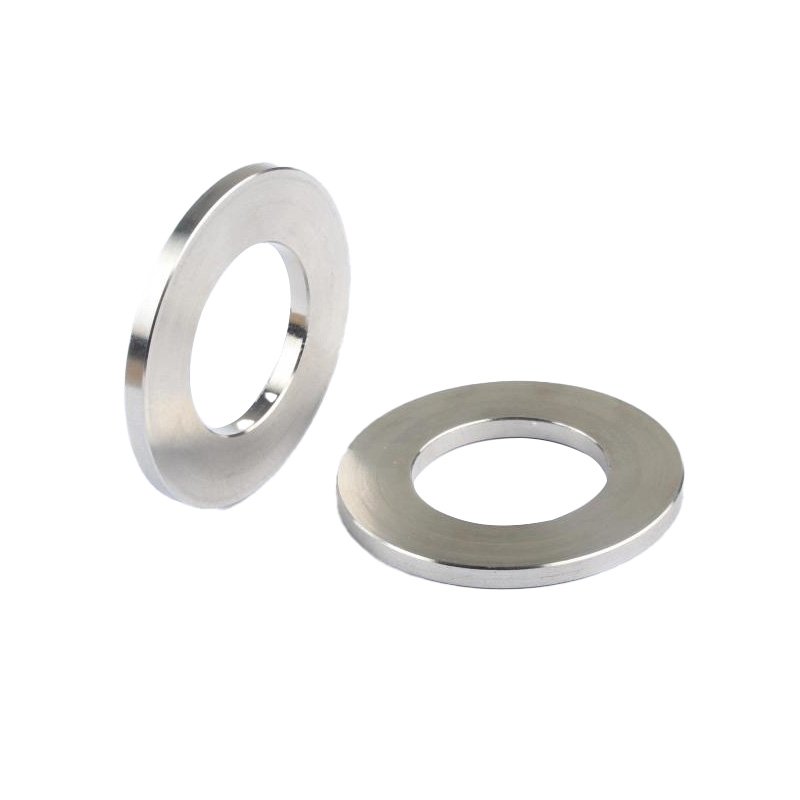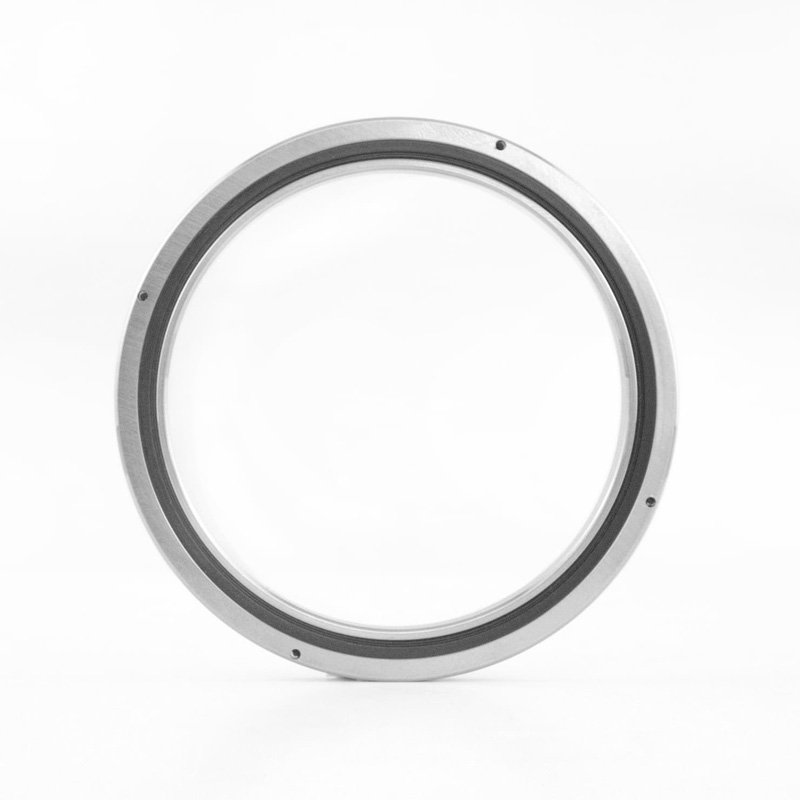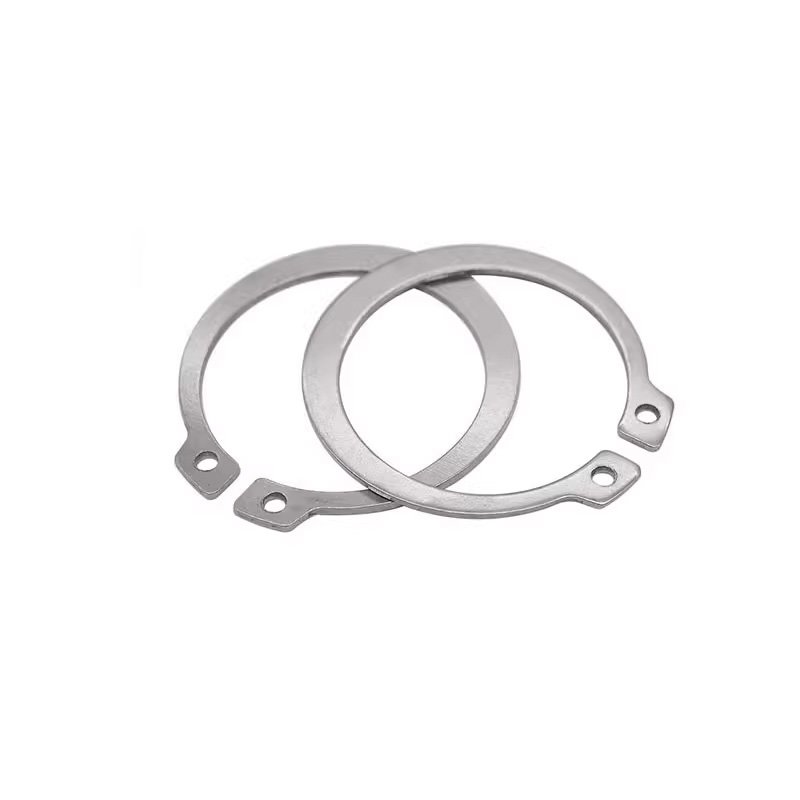Collar washers are specialized hardware components designed to provide secure fastening, alignment, and spacing in mechanical assemblies. These washers feature a raised collar or shoulder that ensures precise positioning and prevents loosening of fasteners under vibration or load. Widely used in industries such as automotive, aerospace, and machinery, collar washers are critical for maintaining the integrity and reliability of assemblies. This article provides a detailed overview of collar washers, their types, applications, and key considerations for selection and use, based on real-world data and examples.
What Are Collar Washers?
Collar washers are flat washers with an integrated raised collar or shoulder around the central hole. This collar provides additional support and alignment for bolts, screws, or other fasteners, ensuring they remain securely in place. Collar washers are typically made from materials like steel, stainless steel, or plastic, depending on the application requirements.
Key Features of Collar Washers
- Secure Fastening: Prevent loosening of fasteners under vibration or load.
- Alignment: Ensure precise positioning of fasteners and components.
- Spacing: Provide consistent spacing between components.
- Durability: Made from robust materials to withstand mechanical stress and environmental conditions.
 Types of Collar Washers
Types of Collar Washers
Collar washers come in various designs to suit different applications and requirements. Below are some of the most common types:
1. Steel Collar Washers
- Design: Made from carbon steel for high strength and durability.
- Applications: Ideal for heavy-duty applications in machinery and construction.
2. Stainless Steel Collar Washers
- Design: Made from stainless steel for corrosion resistance.
- Applications: Suitable for outdoor or corrosive environments, such as marine or chemical industries.
3. Plastic Collar Washers
- Design: Made from durable plastics like nylon or polycarbonate.
- Applications: Ideal for lightweight or non-conductive applications, such as electronics or furniture.
4. Flanged Collar Washers
- Design: Feature an extended flange for additional support and load distribution.
- Applications: Used in applications requiring enhanced stability, such as automotive or aerospace.
5. Shoulder Collar Washers
- Design: Feature a stepped collar for precise alignment and spacing.
- Applications: Ideal for applications requiring tight tolerances, such as precision machinery.
Applications of Collar Washers
Collar washers are used across a wide range of industries and applications, including:
1. Automotive
- Example: Secure and align components in engine assemblies, suspension systems, and chassis.
2. Aerospace
- Example: Ensure precise alignment and secure fastening in aircraft structures and systems.
3. Industrial Machinery
- Example: Provide spacing and alignment for gears, bearings, and shafts in heavy machinery.
4. Electronics
- Example: Secure circuit boards and components in electronic devices.
5. Furniture Assembly
- Example: Provide spacing and alignment for joints and fasteners in furniture.
Selection Criteria for Collar Washers
When selecting collar washers, consider the following factors:
1. Material
- Steel: Offers high strength and durability for heavy-duty applications.
- Stainless Steel: Provides corrosion resistance for harsh environments.
- Plastic: Suitable for lightweight or non-conductive applications.
2. Load Capacity
- Static Loads: Ensure the washer can handle the weight of the components.
- Dynamic Loads: Consider the forces exerted during operation, such as vibration or impact.
3. Dimensions
- Collar Height: Choose washers with the appropriate collar height for the required spacing.
- Hole Size: Ensure the central hole matches the fastener diameter.
4. Environmental Conditions
- Corrosion Resistance: Select stainless steel or coated washers for outdoor or corrosive environments.
- Temperature: Choose materials that can withstand the operating temperature range.
5. Application Requirements
- Alignment: Ensure the washer provides the required level of precision for the application.
- Spacing: Choose washers with the appropriate thickness for consistent spacing.
Installation and Maintenance Tips
1. Installation
- Alignment: Ensure the washer is properly aligned with the fastener and components.
- Torque: Use the recommended torque settings to avoid over-tightening or under-tightening.
2. Maintenance
- Inspection: Regularly check for signs of wear, deformation, or corrosion.
- Replacement: Replace damaged or worn washers to maintain assembly integrity.
Common Issues and Solutions
1. Loosening
- Issue: Fasteners may loosen under vibration or load.
- Solution: Use collar washers with a higher collar height or flanged design for better retention.
2. Corrosion
- Issue: Steel washers may corrode in humid or corrosive environments.
- Solution: Use stainless steel or coated washers for better corrosion resistance.
3. Misalignment
- Issue: Improper alignment can reduce the effectiveness of the washer.
- Solution: Use shouldered or flanged collar washers for precise alignment.
Conclusion
Collar washers are indispensable components for secure fastening, alignment, and spacing in mechanical assemblies. By understanding the different types, selection criteria, and maintenance practices, you can ensure optimal performance and longevity of your assemblies. Whether you’re working in automotive, aerospace, or industrial machinery, collar washers are a critical part of your success.







